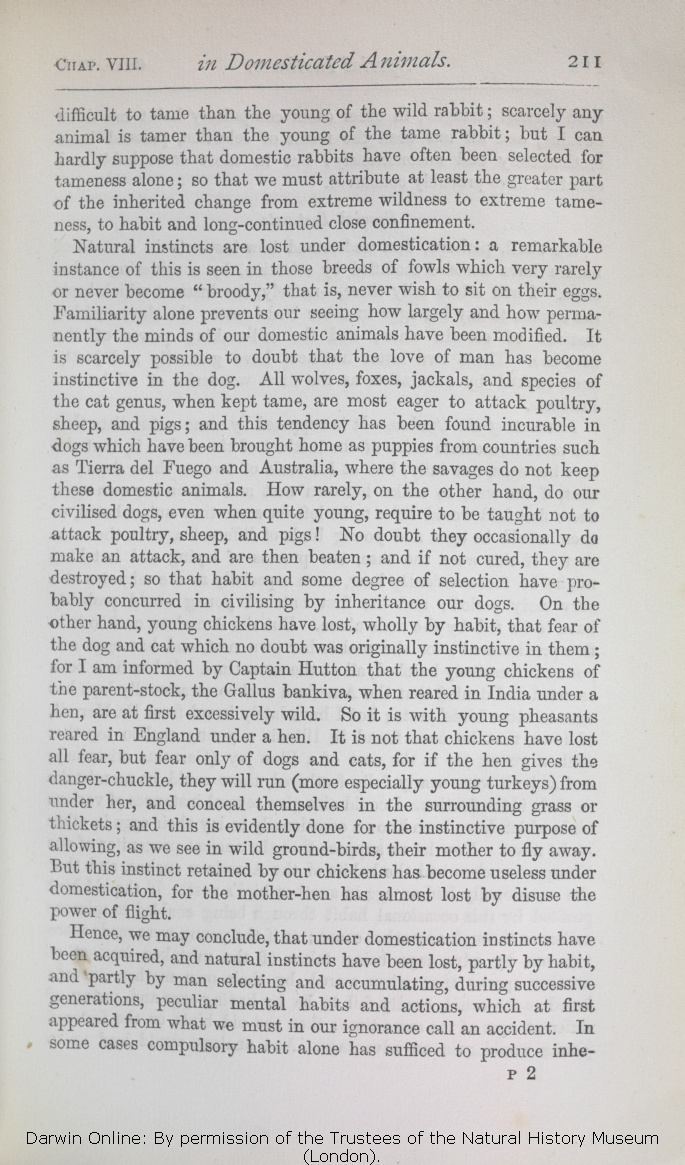Natural instincts are lost under domestication: a remarkable instance of this is seen in those breeds of fowls which very rarely or never become "broody," that is, never wish to sit on their eggs. Familiarity alone prevents our seeing how
largely | largely 1869 1872 | | universally 1859 1860 1861 1866 |
| how permanently 1869 1872 | | largely 1859 1860 1861 1866 |
| modified. 1869 1872 | | modified 1859 1860 1861 1866 |
| ..... 1869 1872 | | by 1859 1860 1861 1866 |
| ..... 1869 1872 | | domestication. 1859 1860 1861 1866 |
| love 1859 1860 1861 1866 1872 | | love, 1869 |
| countries 1872 | | countries, 1859 1860 1861 1866 1869 |
| habit 1872 | | habit, 1859 1860 1861 1866 1869 |
| and 1872 | | with 1859 1860 1861 1866 1869 |
| selection 1872 | | selection, 1859 1860 1861 1866 1869 |
| have 1869 1872 | | has 1859 1860 1861 1866 |
| them; 1866 1869 1872 | | them, 1859 1860 1861 |
| for I am informed by Captain Hutton that the young chickens of the parent-stock, the Gallus bankiva, when reared in India 1866 1869 1872 |
| in the same way as it is so plainly instinctive in young pheasants, though reared 1859 1860 1861 |
| hen, are at first excessively wild. 1866 1869 1872 |
| hen. 1859 1860 1861 |
| for 1859 1860 1861 1869 1872 | | for, 1866 |
| domestication, 1859 1860 1861 1869 1872 | | do- mestication, 1866 |
|
Hence, we may conclude, that
under domestication | under domestication 1861 1866 1869 1872 | | domestic 1859 1860 |
| acquired, 1866 1869 1872 | | acquired 1859 1860 1861 |
| lost, 1866 1869 1872 | | lost 1859 1860 1861 |
| accumulating, 1866 1869 1872 | | accumulating 1859 1860 1861 |
| ..... 1869 1872 | | such 1859 1860 1861 1866 |
|









